For our 26th annual event, TCC features seven (7) plenary sessions. These sessions are scheduled so that participants may view a live session during a typical workday in four regions around the world: Asia (Tokyo/Korea), Hawaii (HST), North America (EDT), and Europe (EEST). Regardless of your location, there will be a plenary session that you can participate in real-time.
March 17, 2021 | 2:00pm HST
Date/Time: March 17 , 2021 2:00pm HST
Description:
This session highlights impacts of the COVID-19 pandemic on teaching and learning in Pacific Islander communities as well as effective community-based responses, including those which leverage cultural values and norms. Digital and social inequities as well as strategies to support these communities will also be shared.
About Your Presenter:
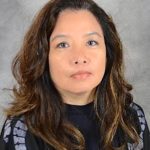 Mary Therese Perez Hattori, Ed.D.
Mary Therese Perez Hattori, Ed.D.
Acting Director
Pacific Islands Development Program
East-West Center
Honolulu, Hawaii, USA
Dr. Mary Therese Perez Hattori is native Chamoru of the island of Guåhan (Guam). She is one of nine children born to Fermina Leon Guerrero Perez and Paul Mitsuo Hattori and resides in O‘ahu, Hawai’i. She holds a B.Ed. and Professional Diploma in Secondary Social Studies with a concentration in Pacific Islands History, an M.Ed. in Educational Technology, and an Ed.D. in Professional Educational Practice from the University of Hawai‘i at Mānoa. Dr. Hattori is Acting Director of the Pacific Islands Development Program in the East-West Center and an affiliate faculty for the University of Hawai’i.
April 13, 2021 | 10:00am HST
Description: A global collaboration experience with technology from two cohorts of graduate students (Atlanta, USA and Iloilo, Philippines) provided experience in critical areas impacting the planning, design, development, and implementation of designed learning experiences such as communication, comprehension, collaboration, and community-building. The US partners served as designers of learning experiences while their Philippine counterparts provided valuable information on audience, context, delivery infrastructure, and accessible resources; as teachers of the target audience, the Filipinos also served as implementers of the designed instructional experiences. The session discusses the challenges identified and insights gained from the three-month experience of engaging the two student cohorts: becoming team members and collaborators as well as designers and instructors. The presentation will address the context-based factors and issues (i.e., pandemic) that provided authenticity to the design and development experiences for the cohort of graduate students; A list of recommendations will be included for those interested in conducting similar learning experiences for their students.
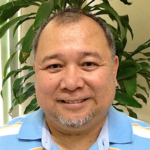 About Your Presenter:
Dr. Danilo Baylen
Professor, Instructional Technology
University of West Georgia
USA
Danilo M. Baylen is a tenured full professor of Instructional Technology, Media and Design in the College of Education at the University of West Georgia (USA). He teaches, conducts research, and publishes on effective technology integration practices, visual and media literacy education, creative thinking, and collaborative learning.
As a scholar-practitioner, Dr. Baylen co-edited a book, Essentials of Teaching and Integrating Visual and Media Literacy published by Springer (2015) and the Internationalization of Library and Information Science Education in the Asia-Pacific Region by IGI Global (2020). The Springer publication received the AECT 2016 publication award.
About Your Presenter:
Dr. Danilo Baylen
Professor, Instructional Technology
University of West Georgia
USA
Danilo M. Baylen is a tenured full professor of Instructional Technology, Media and Design in the College of Education at the University of West Georgia (USA). He teaches, conducts research, and publishes on effective technology integration practices, visual and media literacy education, creative thinking, and collaborative learning.
As a scholar-practitioner, Dr. Baylen co-edited a book, Essentials of Teaching and Integrating Visual and Media Literacy published by Springer (2015) and the Internationalization of Library and Information Science Education in the Asia-Pacific Region by IGI Global (2020). The Springer publication received the AECT 2016 publication award. April 13, 2021 | 2:00pm HST
Description: Shifting to a digital technology and online education space in March offered new variables to consider in teaching, learning, and schooling. At Education Incubator (EI), we responded to the needs for at-home, remote-teaching and learning supports brought before us by the teachers, students, families, and organizations we work with - whether through professional development, original programming aimed at family learning, or collaborative workshops. We created opportunities for meaningful social connection, authentic conversation about challenging issues, mindfulness practices, innovation and invention grounded in place, non-screen engagement and exploration activities to support well-being and growth during the shift to learn-from-home + work-from-home. The wisdom of ALOHA – Akahai (kindness, gentle), Lōkahi (unity, unbroken), ʻOluʻolu (agreeable, gentle), Haʻahaʻa (humility, empty), and Ahonui (patience, waiting for the moment) – taught to Hawaiʻi by Auntie Pilahi Paki and Pono Shim can and should inform authentic, engaging, digitally-enhanced, culturally-grounded teaching and learning for all. From determining what success looks like to redefining what education might be for our global communities, ALOHA is a key that can help unlock even the most difficult of doors and portals.
About Your Presenter: Dr. Miki Tomita Founder & CEO Education Incubator, Honolulu USA Miki K. Tomita (Ph.D. in education at Stanford University) is the Founder and CEO of Education Incubator (EI), a Hawaiʻi-based nonprofit dedicated to creating opportunities for youth and educators to be agents of change for a more positive world through social impact entrepreneurship and innovation, place- and culture-based curriculum development, and professional development. EI works with students and the community to design and implement unique place-based, solution-oriented initiatives based on the core value of innovation with ALOHA.
April 14, 2021 | 9:00am HST
Description: As we move toward the future, there is a growing perception that the speed of technology is accelerating. New tools, workflows, augmented and virtual reality, disrupted fields, artificial intelligence and a hyper networked world have resulted in the need for continuous retraining, much of this online. The COVID-19 has intensified the move to online learning. This talk will start with current methods developed to accelerate learning and talk about the connection of some emerging technologies and the potential impact on the learning process. I was drawn to blended learning by the combination of teaching 3D Digital Design, which involves design thinking as well as technical demonstrations. Accelerating student learning while maximizing my time teaching design thinking was made possible by creating a large number of videos on the technical process. This process has transformed over the last several years. I’ll discuss some of the research I’m currently doing on remote learning, Virtual Production and it’s potentials to further transform how we learn and collaborate.
 About Your Presenter:
Shaun Foster
Associate Professor, 3D Digital Design
Rochester Institute of Technology
USA
Shaun Foster is an Associate Professor of 3D Digital Design at the Rochester Institute of Technology in Rochester, NY. with 20 years experience in 3D graphics and interactive educational design. He has worked on multiple award winning, national and regional TV, advertising and interactive education projects. Foster published multiple times on the connection of design to next generation technology and speaks regularly at his fields top conferences. Foster has worked on multiple grants including: NY State 100K Augmented Reality tourism (2013-14), a 3D Asylum reconstruction (2014), a NSF BioFuel Education (2015) and a HTC Vive (VR) grant (2016), Breakthrough Grant VR Cary 2017, URMC VR Steroid Pathways Learning Grant (2018), EpicMegaGrant Online Learning (2019), EpicMegaGrant Virtual Production (Co-PI 2020).
About Your Presenter:
Shaun Foster
Associate Professor, 3D Digital Design
Rochester Institute of Technology
USA
Shaun Foster is an Associate Professor of 3D Digital Design at the Rochester Institute of Technology in Rochester, NY. with 20 years experience in 3D graphics and interactive educational design. He has worked on multiple award winning, national and regional TV, advertising and interactive education projects. Foster published multiple times on the connection of design to next generation technology and speaks regularly at his fields top conferences. Foster has worked on multiple grants including: NY State 100K Augmented Reality tourism (2013-14), a 3D Asylum reconstruction (2014), a NSF BioFuel Education (2015) and a HTC Vive (VR) grant (2016), Breakthrough Grant VR Cary 2017, URMC VR Steroid Pathways Learning Grant (2018), EpicMegaGrant Online Learning (2019), EpicMegaGrant Virtual Production (Co-PI 2020). April 14, 2021 | 11:00am HST
Description: This presentation begins with the question: What should an educator know about educational technology? This is a meaningful question because so many educators, perhaps now more than ever, are being asked to make important decisions about educational technology. For this reason, it makes sense for institutions of higher education to find ways to prepare educators to navigate the various perspectives involved in considering particular educational technologies. With this premise in mind, this presentation argues that one way to prepare educators is to introduce them to critical perspectives of technology and educational technology. Drawing on cognitive, pedagogical, and socio-cultural perspectives, the presentation reviews various critiques of educational technology and how they might be positioned as an important part of what educators should know about educational technology.
 About Your Presenter:
Dr. Dan Hoffman
Assistant Professor, Learning Design & Technology
University of Hawaiʻi at Mānoa
USA
Daniel L. Hoffman is an Assistant Professor of Learning Design & Technology at the University of Hawaii at Mānoa. He earned his doctorate in Instructional Technology & Media from Teachers College, Columbia University, after working as an elementary school teacher. His research focuses on the design of interactive experiences and their impact on learning and engagement. He enjoys teaching courses in programming games and simulations and digital video design, as well as social and ethical issues in educational technology. He is a graduate of the New York City Teaching Fellows program and has designed and evaluated educational software for Intel and the Games for Learning Institute.
About Your Presenter:
Dr. Dan Hoffman
Assistant Professor, Learning Design & Technology
University of Hawaiʻi at Mānoa
USA
Daniel L. Hoffman is an Assistant Professor of Learning Design & Technology at the University of Hawaii at Mānoa. He earned his doctorate in Instructional Technology & Media from Teachers College, Columbia University, after working as an elementary school teacher. His research focuses on the design of interactive experiences and their impact on learning and engagement. He enjoys teaching courses in programming games and simulations and digital video design, as well as social and ethical issues in educational technology. He is a graduate of the New York City Teaching Fellows program and has designed and evaluated educational software for Intel and the Games for Learning Institute. April 14, 2021 | 2:00pm HST
Description: COVID-19 has compelled educators to find ways to creatively reach out to communities in ways that are new and exciting. In April 2020, Dr. Vunidilo launched her online platform “TalanoaWith Dr T,” a free Fijian language program that reaches young Fijians around the world. With more than 32,000 followers on Facebook and over 3,000 subscribers on YouTube, there is a demand for such cultural programs in Fiji as well as in the diaspora. Having been a speaker and educator for the Cultural Competency webinar series presented by the Hawaii Museums Association, Dr. Vunidilo will share her thoughts and experiences in online learning.
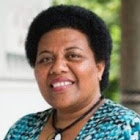 About Your Presenter:
Tarisi Vunidilo
Assistant Professor
Department of Anthropology
University of Hawaiʻi at Hilo
Hilo, Hawaii USA
Tarisi Vunidilo completed her Ph.D. in Pacific Studies: iYau Vakaviti-Fijian Treasures, Cultural Rights and Repatriation of Cultural Materials from International Museums, at the University of Auckland Centre of Pacific Island Studies. She has published two books and several articles about Fijian pottery, language and archaeology and currently volunteers as Secretary-General for the Pacific Islands Museums Association (PIMA). Dr. Vunidilo completed her Ph.D. in Pacific Studies, iYau Vakaviti-Fijian Treasures, Cultural Rights and Repatriation of Cultural Materials from International Museums, at the University of Auckland Centre of Pacific Island Studies in New Zealand.
About Your Presenter:
Tarisi Vunidilo
Assistant Professor
Department of Anthropology
University of Hawaiʻi at Hilo
Hilo, Hawaii USA
Tarisi Vunidilo completed her Ph.D. in Pacific Studies: iYau Vakaviti-Fijian Treasures, Cultural Rights and Repatriation of Cultural Materials from International Museums, at the University of Auckland Centre of Pacific Island Studies. She has published two books and several articles about Fijian pottery, language and archaeology and currently volunteers as Secretary-General for the Pacific Islands Museums Association (PIMA). Dr. Vunidilo completed her Ph.D. in Pacific Studies, iYau Vakaviti-Fijian Treasures, Cultural Rights and Repatriation of Cultural Materials from International Museums, at the University of Auckland Centre of Pacific Island Studies in New Zealand. April 15, 2021 | 10:00am HST
Description: What are the current trends in online education? BestColleges’ 7th annual report includes survey feedback from more than 350 college and university administrators and 1800 students (online, remote, alumni, and prospective students). Online education was experienced by a wide variety of schools and students in 2020 -- some new to distance learning and others with advanced knowledge and skills -- due to the campus closings caused by the coronavirus outbreak. School administrators and students provided feedback about their year in terms of remote courses (i.e., classes moved from campus to online environments due to COVID-19 restrictions) and online courses (i.e., classes designed for online delivery). This session will share details of the latest report as part of a larger initiative of long-term tracking and identification of trends related to: online learner demographics, the online learning experience, considerations for new programs, perceptions of online education, and student satisfaction.
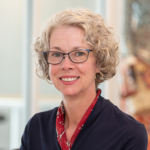 About Your Presenter:
Dr. Melissa Venable
Online Education Advisor
Best Colleges
USA
Melissa A. Venable, Ph.D. is a writer and education advisor for BestColleges where she leads an annual survey research initiative reporting trends in online education. She is also an adjunct instructor with Saint Leo University’s M.S. in Instructional Design program and a certified career coach with a background in career development services.
Dr. Venable serves as an associate editor for eLearn Magazine and as a features co-editor for the National Career Development Association’s Career Convergence magazine. She earned her doctorate in instructional technology at the University of South Florida with research interests in distance education and career services for online students.
About Your Presenter:
Dr. Melissa Venable
Online Education Advisor
Best Colleges
USA
Melissa A. Venable, Ph.D. is a writer and education advisor for BestColleges where she leads an annual survey research initiative reporting trends in online education. She is also an adjunct instructor with Saint Leo University’s M.S. in Instructional Design program and a certified career coach with a background in career development services.
Dr. Venable serves as an associate editor for eLearn Magazine and as a features co-editor for the National Career Development Association’s Career Convergence magazine. She earned her doctorate in instructional technology at the University of South Florida with research interests in distance education and career services for online students. April 15, 2021 | 2:00pm HST
Description: Koreans have attempted various unprecedented approaches to continue public educational business as usual after the outbreak of Covid-19. Still the endpoint of this pandemic is highly uncertain, Korea may extend its social distancing learning and instruction approach into the first half of 2021. Schools and universities have been busy reorganizing their soft and hard service systems to adapt to this unexpected situation, including instructional delivery, curriculum management, professional development, and even working cultures. Professor Lee will reflect on her personal, organizational and national experiences along with exemplary cases. These learned experiences will be extended to discuss the needs for transformation, especially in the higher education sector.
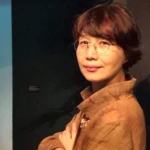 About Your Presenter:
Dr. Insook Lee
Professor, Department of Education
Sejong University
Republic of Korea
Dr. Insook Lee received her Ph.D. in Instructional Systems Technology from Indiana University. She is a full professor at the Department of Education, Sejong University, Seoul, Republic of Korea. She received the Distinguished Research Professor Award (three years accumulated research performance) from Sejong University, in 2004, AECT Presidential Award in 2018, and the Robert de Kieffer International Fellowship Award from AECT in 2003. Dr. Lee is past-president of the Korean Society for Learning & Performance (KSLP) and served as President of the Korean Society for Educational Technology (KSET).
About Your Presenter:
Dr. Insook Lee
Professor, Department of Education
Sejong University
Republic of Korea
Dr. Insook Lee received her Ph.D. in Instructional Systems Technology from Indiana University. She is a full professor at the Department of Education, Sejong University, Seoul, Republic of Korea. She received the Distinguished Research Professor Award (three years accumulated research performance) from Sejong University, in 2004, AECT Presidential Award in 2018, and the Robert de Kieffer International Fellowship Award from AECT in 2003. Dr. Lee is past-president of the Korean Society for Learning & Performance (KSLP) and served as President of the Korean Society for Educational Technology (KSET). 